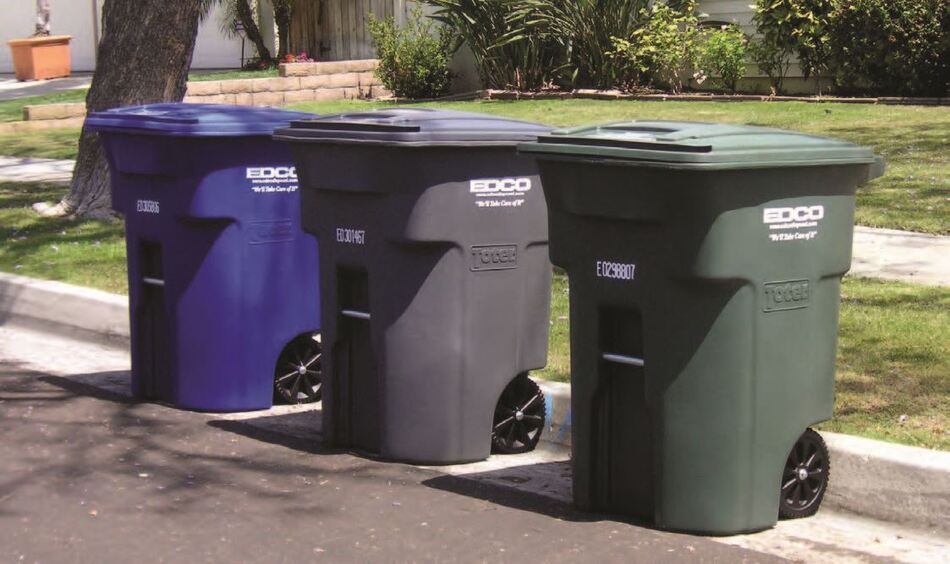Organics Recycling vs Composting in Encinitas: What’s the Difference?
So, you have a green bin, but what can you put in it? What are the benefits to having a green bin if you are already composting in your backyard? Both composting and organics recycling are vital processes contributing to the City's eco-friendly initiatives, but how exactly do they differ?
Organics Recycling: Curbside Collection
The green rolling bins that you’re already using for yard waste now have an additional purpose! As of 2021, Encinitas residents are also able to put their food scraps into the green bin. Items that can now go in the green bin include:

One of the key aspects of organics recycling is the utilization of advanced facilities that can efficiently break down organic matter. Encinitas’ waste hauler, EDCO, uses anaerobic digestion processes which accelerate the decomposition of organic waste. This process not only reduces greenhouse gas levels that would otherwise be emitted from the landfill, it produces valuable byproducts such as nutrient-rich soil amendments, mulch, and biogas that can be used as a sustainable fuel source. Since your organic waste items are transferred to a facility that has more control over the process, you are able to put more in your curbside organics bin than a traditional compost bin.
Composting: A Backyard Revolution
Composting, on the other hand, is a more decentralized and hands-on approach to managing organic waste. Encinitas residents are encouraged to participate in home composting, turning kitchen scraps and yard waste into nutrient-dense compost right in their own backyards.
Items that can be put in a backyard compost bin vary based on the type of composting method, but generally include a mixture of:
Fruit and vegetable pieces and peels, coffee grounds and filters, tea bags, moldy fruits, vegetables, and breads, egg shells, shredded paper products, citrus pieces and peels, spicy foods (i.e. onions, hot peppers), plain bread, cereal, and pasta, miscellaneous plate scrapings, leaves, and yard waste.
This DIY approach not only reduces the burden on municipal waste management systems but also empowers individuals to actively contribute to the city's sustainability goals. Composting is a simple yet impactful practice that promotes soil health, reduces methane emissions from landfills, and fosters a deeper connection between residents and their environment.
However, other items such as cooked or raw meat, poultry and seafood (including bones), cheese, dairy products, citrus peels, and more cannot be placed in traditional compost bins. (BUT they can be placed in your curbside organics bin!)
Why not both?
Understandably, not everyone has the ability to have their own compost bin in their backyard, and those who already compost may be frustrated at needing to use the curbside organics bin. However, those who compost can place non-compostable materials in their organics bin, and those who cannot compost have an opportunity to help the planet by using their organics bin.
The city's commitment to both centralized organics recycling facilities and community-driven composting initiatives reflects a holistic approach to creating a more sustainable and resilient environment: a win for our community, and our planet!
Previous Post
Clean-Powered Communities
Next Post
How to incorporate sustainability into your child's online and in school learning

